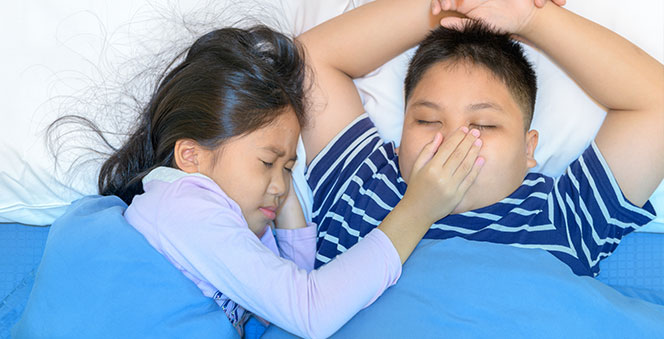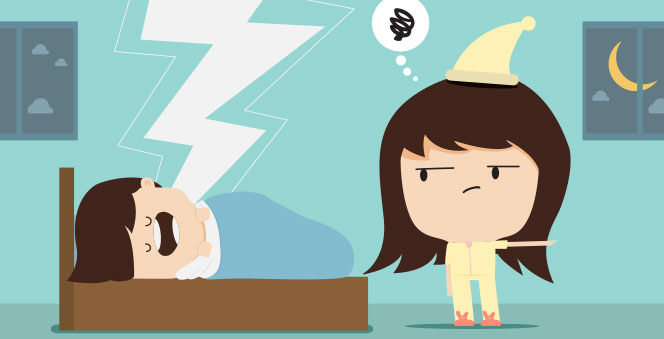Parents are typically astounded to discover that regular snoring in kids is concerning. Besides, when your youngster has a cold, which may hinder the nasal paths, snoring that happens frequently is something that may be serious and needs to be looked at by a specialist. Snoring happens when something prevents the air from going through the rear of your youngster’s throat, causing a vibration. It can make your kid sleep inadequately. This thus can prompt diminished concentration and focus, bring down IQ scores, behavioral problems, and even restlessness.
WHAT CAUSES SNORING?
In kids, the most widely recognized causes are:
- Extended tonsils and adenoids
- Blocked nasal breathing from extended turbinate (the internal covering of the bones in the nose)
- Hypersensitivity
- An out-of-position septum
Snoring can likewise be because of the narrowing of the aviation route dependent on how your kid’s aviation route is molded, or from weight gain. About 10-20% of all children are known to snore all the time.
WHEN SHOULD YOU WORRY ABOUT YOUR CHILD’S SNORING?
- Unprecedently loud snoring.
- Stops in breathing and wheezing clamors.
- Breathing with mouth open for the duration of the night.
- Breathing that looks awkward. For instance, the chest isn’t moving easily and without any problem.
- Your kid makes movements more than necessary while being asleep.
- Your kid has hazard factors that make him susceptible to sleep apnea.
WHAT CAN BE DONE ABOUT IT?
Once in a while simply observing your child while they are asleep is suggested, particularly for older youngsters. This is on the grounds that a kid’s tonsils and adenoids get bigger until age 6 or 7 and afterward gradually reduce in size.
A few youngsters who snore because of a nasal hindrance like sensitivities may get relief by taking over the counter medication. These can incorporate a nasal steroid, an antihistamine, or even saltwater nasal washes.
Some ongoing investigations show that montelukast (a leukotriene inhibitor medicine known as Singulair) can lessen adenoid size while keeping allergies at bay.
EFFECTIVE HOME REMEDIES FOR BABIES.
THESE SNORING SOLUTION CAN BE REALLY HELPFUL FOR YOUR CHILD
CHANGE HIS SLEEPING POSITION
If your kid sleep on his back the uvula can move to the back of the throat and partially block the airway.
PLACE A HUMIDIFIER IN YOUR SNORING CHILD’S BEDROOM
Boosting the humidity may effectively ease nighttime stuffiness, which can help with snoring.
CHANGE YOUR PILLOW
Allergens in your bedroom and in your pillow can lead t snoring problem. Dust miles collected in pillow can cause allergic reactions that can lead to snoring. Put your pillows in the air fluff cycle once in a week and change your pillow every six months to keep dust and allergens to a minimum.
MAINTAIN A HEALTHY WEIGHT
Obesity can lead to snoring. Hence, prepare healthy food your kid and encourage your kids into physical activities.
CAN SNORING BE A SIGN OF SOMETHING MORE SERIOUS?
For up to 10% of kids who snore, it very well may be an indication of a progressively major issue, such as obstructive sleep apnea (OSA). This condition can cause delays in breathing or times of diminished airflow through the nostrils. Further, this can add to drops in oxygen or abrupt awakening during sleep. Whenever left untreated, it can have long haul impacts. Such as issues at school, delayed development, hypertension, and even heart attack in some rare cases.Fortunately considers have indicated that heart and lung issues and learning troubles identified with a kid’s snoring or obstructive sleep apnea are reversible.
HOW TO DIFFERENTIATE BETWEEN NORMAL SNORING AND SLEEP APNEA?
Taking part in a pediatric sleep lab is the best way to authoritatively decide if your kid has sleep apnea. It’s critical to have this system done at a pediatric office where they will measure boundaries like carbon dioxide levels to assess your kid, which are generally exact. While some sleep apnea can be dealt with medications and lifestyle changes, other youngsters may require medical procedures. Regularly the expulsion of tonsils and adenoids is important to fix the issue. Others may require positive aviation route strain to completely treat obstructive sleep apnea.
Most importantly in the event that you have any worries about your youngster’s snoring, or on the off chance that the person continues snoring past a common cold, hold a discussion with your pediatrician. This is on the grounds that it isn’t ordinary and can have long haul outcomes whenever left untreated. The individual may allude your youngster to a pediatric otolaryngologist or a pediatric sleep community for additional assessment.






